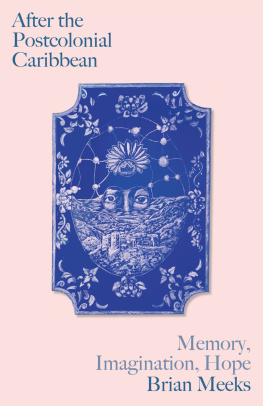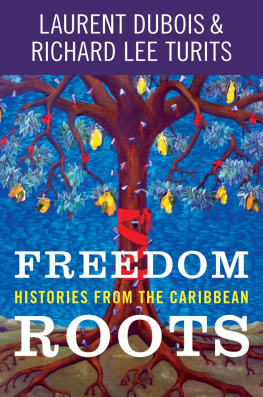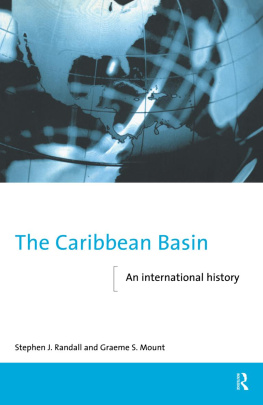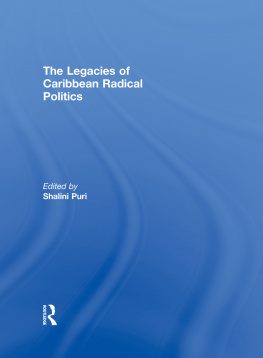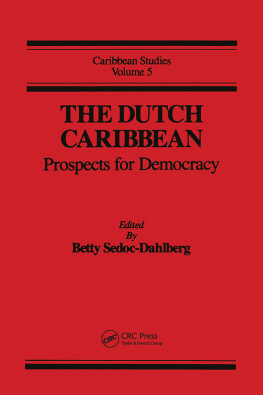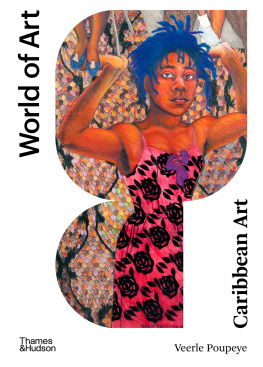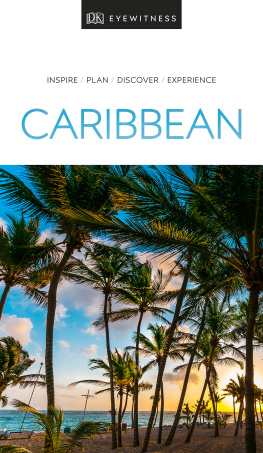Contents
Guide
After the Postcolonial Caribbean
Meeks presents an erudite and unexcitable interpretation of the dark times which engulf us. In sprightly, dancing prose he locates the Caribbean in the global currents which organize who we now are and who we can become. Refusing the programmatic nostrums which see only the darkness, his is a democratic sensibility which affirms the creativity of the oppressed, expansively conceived. Working from an immovable materialism, he unearths the subterranean forces which mark emergent futures and in which life itself can flourish. Memory. Imagination. Hope. Indeed. Meeks offers us a book of rare beauty.
Bill Schwarz, Queen Mary University of London
Brian Meeks After the Postcolonial Caribbean is a clarion call. He reminds us that only a state, understood as a fully democratized postsecular deity of our collective making, can save us. After the Postcolonial Caribbean is exemplary of C.L.R. Jamess grounded creative universality at its best.
Francio Guadeloupe, University of Amsterdam and Royal Netherlands Institute for Southeast Asian & Caribbean studies
Black Critique
Series editors: Anthony Bogues and Bedour Alagraa
We live in a troubled world. The rise of authoritarianism marks the dominant current political order. The end of colonial empires did not inaugurate a more humane world; rather, the old order reasserted itself.
In opposition, throughout the twentieth century and until today, anti-racist, radical decolonization struggles attempted to create new forms of thought. Figures from Ida B. Wells to W.E.B. Du Bois and Steve Biko, from Claudia Jones to Walter Rodney and Amlcar Cabral produced work which drew from the historical experiences of Africa and the African diaspora. They drew inspiration from the Haitian revolution, radical Black abolitionist thought and practice, and other currents that marked the contours of a Black radical intellectual and political tradition.
The Black Critique series operates squarely within this tradition of ideas and political struggles. It includes books which foreground this rich and complex history. At a time when there is a deep desire for change, Black radicalism is one of the most underexplored traditions that can drive emancipatory change today. This series highlights these critical ideas from anywhere in the Black world, creating a new history of radical thought for our times.
Also available:
Moving Against the System: The 1968 Congress of Black Writers and the Making of Global Consciousness
Edited and with an Introduction by David Austin
Anarchism and the Black Revolution: The Definitive Edition
Lorenzo Komboa Ervin
A Certain Amount of Madness: The Life, Politics and Legacies of Thomas Sankara
Edited by Amber Murrey
Of Black Study
Joshua Myers
Cedric J. Robinson: On Racial Capitalism, Black Internationalism,and Cultures of Resistance
Edited by H.L.T. Quan
Black Minded: The Political Philosophyof Malcolm X
Michael Sawyer
Red International and Black CaribbeanCommunists in New York City, Mexicoand the West Indies, 19191939
Margaret Stevens
The Point Is to Change the World:Selected Writings of Andaiye
Edited by Alissa Trotz

First published 2023 by Pluto Press
New Wing, Somerset House, Strand, London WC2R 1LA and Pluto Press Inc.
1930 Village Center Circle, 3-834, Las Vegas, NV 89134
www.plutobooks.com
Copyright Brian Meeks 2023
The right of Brian Meeks to be identified as the author of this work has been asserted in accordance with the Copyright, Designs and Patents Act 1988.
British Library Cataloguing in Publication Data
A catalogue record for this book is available from the British Library
ISBN 978 0 7453 4790 5 Paperback
ISBN 978 0 7453 4793 6 PDF
ISBN 978 0 7453 4792 9 EPUB
This book is printed on paper suitable for recycling and made from fully managed and sustained forest sources. Logging, pulping and manufacturing processes are expected to conform to the environmental standards of the country of origin.
Typeset by Stanford DTP Services, Northampton, England
Simultaneously printed in the United Kingdom and United States of America
Contents
List of Photographs
Acknowledgments
It is an absolute privilege to have been able to devote most of my working life in trying to understand and discuss the social as well as political contours of the Caribbean and particularly to engage with the people and movements that have sought to bring about meaningful change in the region. Alongside this, I have had the good fortune of sharing this exploration, conversation, and debate with a community of fellow travelers, many of whom have become steadfast friends and whose sharp minds and keen insights have helped sharpen mine. Among them are my colleagues and collaborators who over the years have been part of a lively discourse on the Caribbean at many venues, symposia, and conferences. Those still here include (and my apologies if I have left anyone out) Rupert Lewis, Anthony Bogues, Patsy Lewis, Percy Hintzen, Pedro Noguera, Anton Allahar, Linden Lewis, Deborah Thomas, Carole Boyce Davies, Alissa Trotz, Paget Henry, Cecilia Green, Maureen Warner-Lewis, Lewis Gordon, Jane Anna Gordon, Neil Roberts, Kari Levitt, Erna Brodber, Alex Dupuy, David Scott, Faith Smith, Belinda Edmondson, Charles Carnegie, Trevor Munroe, Don Robotham, Gina Ulysse, Aaron Kamugisha, Rachel Manley, Rivke Jaffe, Jay Mandle, Mervyn Morris, David Lehmann, Anthony Payne, Hilbourne Watson, C. Y. Thomas, Obika Gray, Velma Pollard, Gordon Rohlehr, David Austin, Patrick Goodin, Bill Schwarz, Carolyn Cooper, Hubert Devonish, Kate Quinn, Shalini Puri, Tennyson Joseph, Sunity Maharaj, Pat Northover, Kim Robinson-Walcott, Wendy Grenade, Yarimar Bonilla, Rhoda Reddock, Clinton Hutton, Esther Figueroa, Anthony Harriott, Naghmeh Sohrabi, Folke Lindahl, Sonjah Stanley Niaah, Jermaine McCalpin, Don Marshall, Pat Mohammed, Fragano Ledgister, Shanti Singham, Maziki Thame, Donna Hope, Donette Francis, Ariella Azoulay, Vazira Zaminder, Honor Ford-Smith, and Francio Guadeloupe; as well as those who have passed on to meet the ancestors, among them Charles Mills, Norman Girvan, Kamau Brathwaite, Andaiye, Barry Chevannes, Rex Nettleford, Manning Marable, Leith Mullings, Stuart Hall, Kamau Brathwaite, Carl Stone, Edwin Jones, Richard Jacobs, Bill Riviere, Pat Emmanuel, Lloyd Best, Selwyn Ryan, and George Lamming.
More immediately related to After the Postcolonial Caribbean, I thank the hosts, organizers, and editors who facilitated the keynotes, seminars, and edited collections in which several of the chapters were initially presented or published. I start by thanking Dilip Menon, director of the University of Witwatersrands Johannesburg Centre for Indian Studies in Africa, for inviting me to deliver an early reading of my chapter On the Question of Optimism in Troubled Times as part of his Centres series of Distinguished Lectures from the Global South. At University College London, I thank Charlotte Al-Khalili, Narges Ansari, Myriam Lamrani, and Kaya Uzel for hosting and inviting me to the 2019 gathering of anthropologists for the conference After the Event: Prospects and Retrospects of Revolution, at which I further elaborated on this chapter. Thanks to David Scott, Donnette Francis, and the Small Axe collective for their thoughtful 2017 Symposium on the Jamaican 1970s, held both at CUNY Graduate School and Columbia University, which provided me space to think about my own poetry. Gratitude to Christine Chivallon and the team at the Universit Paris Diderot for inviting me to speak on the significance of the Kilburn Manifesto for Caribbean futures at their 2016 conference Une Journe avec Stuart Hall; to Sonjah Stanley Niaah and the Institute of Caribbean Studies and Reggae Studies Unit at the University of the West Indies Mona, for inviting me to deliver the Annual Walter Rodney Lecture Roadblock on Hope Road: The End of Imagination and Capitals Late Afternoon in 2018; to the Edna Manley Foundation and the Edna Manley School for the Visual and Performing Arts in Kingston, Jamaica, for inviting me to give the annual Edna Manley Memorial Lecture in 2015 and to Kim Robinson-Walcott, editor of

